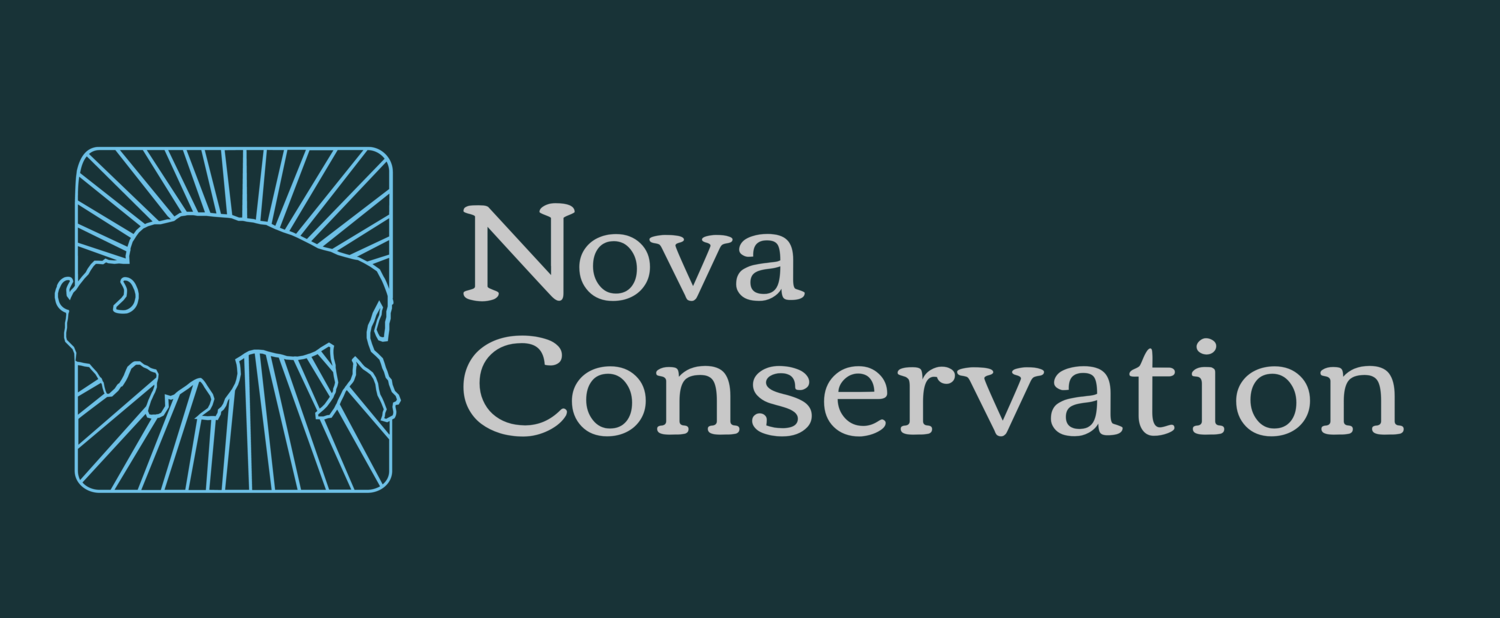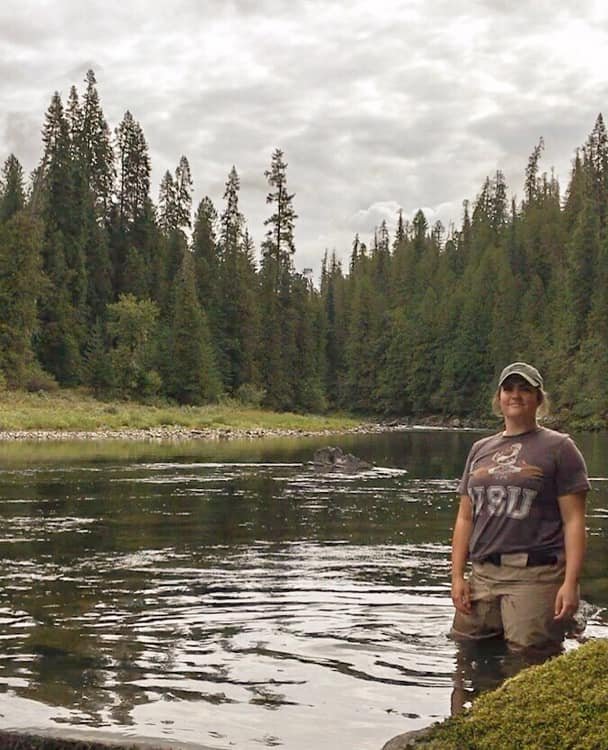What I Wish I Knew Before Graduating With A Wildlife Degree
If you’ve found yourself reading this article you are likely:
Considering pursuing a degree for a wildlife career,
Are in college pursuing your wildlife degree, or
Are already a professional and you want to see if anything is relatable.
No matter which one you are — congratulations on pursuing one of the most AMAZING careers you could have possibly chosen! (Maybe I am biased.)
After graduating from Washington State University three years ago I have learned A LOT throughout the course of my young career. I kept thinking, “Wow, I wish I would have known this.”
Then I decided, why not make a blog post about it!
Reflecting back on my past career endeavors after college, I really noticed how unprepared I was to step into the world of wildlife biology…
*big ole’ facepalm*
Live and learn right? As an undergrad, I was just chasing the dream of working with wildlife.
I knew what I wanted and I thought I was doing all of the “right” things to get me to that point.
Since then I’ve learned there were steps I could have taken to advance my career in a more efficient manner. And I want to share these tips with you!
A disclaimer before we hop in, there are many paths you can take with wildlife degrees! These tips are most relatable to those pursuing a field research position.
Get Internships During The Summer
Now this advice feels like a no brainer.
But when I was in college I thought internships were for people who had just graduated. In college I was involved in graduate research and I thought that would suffice for experience.
I helped collect data, handled live specimens, managed laboratories, attended meetings…I was doing my thing!
Here’s what I didn’t know: this experience wouldn’t always count on my resume. Any lab or field experience acquired during the school year DOES NOT COUNT on a federal resume.
I was shocked when I found this out. There are ways to work around this road block, but that’s info for another blog.
However, other affiliations, like universities and organizations, do take this experience into consideration.
Internships offer the opportunity to apply what you’re learning in the classroom to the field, allows you a glimpse into how professional workplaces operate and gives you a deeper understanding about the day to day of the career you are pursuing.
Internships are an AMAZING opportunity for networking — and this will be one of the most valuable things you can do for your career.
By gaining exposure and experience in the field, internships provide opportunities to see if a career is right for you. Learning what you do and do not like can help you tailor the rest of your education.
Get a Variety of Experience
Not only in college, but also in the years after graduating. Throughout the last 5 years, I have acquired a wide variety of experiences. But it was more of an accident than intentional.
When I first started out, I thought it was more important to have specialized experience. As a young technician—boy was I wrong!
I’ve talked to many senior wildlife biologists who said they would “rather hire someone who has experience in various fields of biology over someone who has worked in only one.”
Experience comes in many different forms in this line of work:
Work in different environments; laboratories, remote field locations or urban field studies.
Work in different ecosystems; desert, marine, forest or tundra.
Work with different affiliations; government, universities or private organizations.
Work with different subjects; mammals, fish, plants or water.
Here I am doing lab work. Some people love the monotony and order of this type of work.
There are a few reasons why having a variety of experience is important:
It broadens your skills. My laboratory experiences were very routine. My responsibilities involved a lot of technology, was very tedious and technical and I worked alone. In the field, basic skills start with being able to read a map & compass, hike miles a day, withstand weather conditions, work with a team and collect viable data. These clearly require very different skills.
You gain a greater understanding of the ecosystem. We know everything is connected. The more work you do in various fields, the more you will understand about nature and how it works. Having a diverse background can better your ability to communicate with different professionals, which is a necessity in conservation planning.
You can fully grasp what type of work you enjoy. In my experience…
— Government work has involved collecting data for policies (like NEPA and EPA) and forest management.
Example: Would the XYZ project meet NEPA requirements where there is viable salmonid spawning habitat?
— University research projects typically study a specific question about a species.
Example: how does domestication affect the sprint speed of trout? (hatchery colonial lines vs their wild counterparts)
Fieldwork is the dream work.
Keep Grad School In The Back Of Your Mind
Keeping your grades in good standards should be something you always strive for. And while I don’t have a bad GPA, I definitely was not considering going on to get my masters.
3 years later… I’m still debating the thought. And I wish I would’ve taken this into consideration while I was in college.
While grad school isn’t always a necessary path, (depending on what you want to do), the job field is incredibly competitive and having a graduate degree can be a leg up.
Know Where To Look For Job Listings
Embarrassing confession #253, I remember looking up jobs on basic search engines like Indeed. I would get so frustrated because I wouldn’t be able to find what I was looking for.
The day I learned about job boards specific to biology is the day my life changed (LOL). But seriously—knowing them is very important.
Here’s a list of my favorites biology job boards:
Texas A&M Job Board
Conservation Jobs
USAJobs and Pathways
American Fisheries National
The Wildlife Society
Society of Conservation Biology
ConservationCareers.com
And of course, here at Nova Conservation! (update 2/9/22: Our database is not longer active, but maybe we’ll go back to it in the future!)
Understand The Field Tech Life
Put in the effort to understand how unique and demanding the field technician lifestyle can be. Your research will help you prepare for your future.
This is Seasonal Work
I say I live my life “6 months at a time.” As a field tech there are two seasons to your life; on season (May-October) and off season (November-April). You can find field positions during “off season”, although harder and more competitive, but it IS possible.
Be Ready To Move. And Move OFTEN.
A blessing and a curse.
When I first graduated I was dead set on getting a job in Washington. So I only applied to open positions in western Washington. Ouch.
This is what gets a lot of people. And I get it. Constantly moving is not easy! Especially every… 6… months. It can be hard on families, relationships and difficult financially which requires you to sacrifice a lot.
The people who are willing to relocate are the people who will make it further in the career. That’s just how it is. In a matter of 2 years I have lived in 4 different states (dispersed throughout the country too).
On the flip side, how cool is it that your job allows you to travel? And travel to remote places most people never see in a lifetime!
Is this something you are willing to do? This is something you should know the answer to before completing your degree.
You’re Going To Have To Figure Out A Budget.
It’s a no brainer we aren’t in this line of work to become billionaires (and if that’s your intention, welp… you might want to reroute your life now). As technicians, we really don’t make much money and this will require you to have a good financial game plan.
If you’re lucky housing is provided for technicians for a really, really low cost! Which is a huge financial relief. Be sure to ask the hiring manager what the living situations are like for the position.
Work on your financial plan now, BEFORE you start applying so you can set yourself up to be able to take offers without having to worry about money.
Be Flexible With Your Goals.
What You Set Out To Be, May Not Be What You End Up Doing.
This ties in with what I said earlier— be diverse. I have dreams of working with wolves— in the 3 years I have been out of college not once have I landed a position with them (until this year, but then COVID ruined everything). My main background is actually in fisheries and amphibians!
Bottom line: TAKE OPPORTUNITIES.
Even if it’s not directly what you want. Skills are often transferable to many different positions, just keep striving towards that big goal.
And you never know, maybe you actually have a niche for something else.
I hope you were able to learn something from my “mistakes”. Bottom line— preparation and hard work pays off in the most incredible ways.
This path is not easy and you will hit some road bumps but with perseverance you can do incredible things. Remember…
“You can’t fail if you don’t quit.”
If you’re a future biologist, comment with something you learned!
And if you’re currently a biologist, what is something you wish you had known before graduating?







